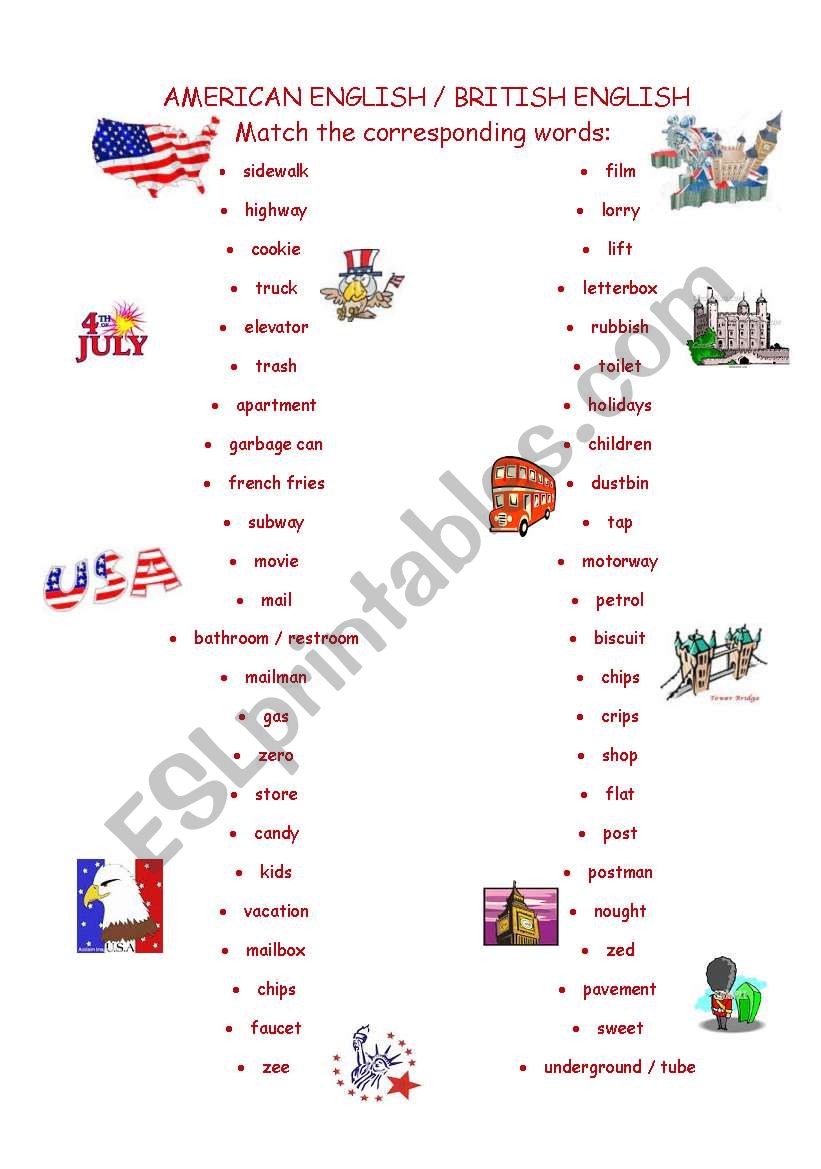

Additionally, many verbs that end in – el in American English have a single l in the past tense. Words ending in – og in American English sometimes end in – ogue in British English (e.g. In British English these words typically end in -ise (e.g. theater – theatre).Īnother difference exists in verbs ending in -ize in American English. Words that end in – er in American English, typically end in -re in British English (e.g. Many of these words end in – our in British English (e.g. One of the most distinctive spelling differences applies to words that end in – or in American English. Let’s take a closer look at how these two varieties of English differ. Most of these differences are related to pronunciation, vocabulary, and idioms, but differences of spelling and grammar also exist. To this day, American and British English differ in more than one way. The colonists reached North America in the early 17th century, and from then on, a new dialect of English, the American English, began to develop. Image credit: © – Fotolia.During the English colonization period, the British sent their language to many different parts of the world. Edwards, Elise Langdon-Neuner, Andy Black Medical Writing: A Prescription for Clarity, 4th Edition, by Neville W. See the German version of this article for additional notes on the German spelling of the terms listed above.

#American english to british english how to#
Its ten short lessons guide you through the medical writing process, explain how to use tricky terms correctly and help you improve your medical writing.
#American english to british english free#
If you’re not a native speaker of English, you might like our free email course on effective medical writing in English as a foreign language. Lynne Murphy, an American linguist in the UK, writes an interesting and enlightening blog on this topic at ‘ separated by a common language’. There are many other differences in usage, including verbs, prepositions, grammar and vocabulary. Spelling differences are only one aspect of the differences between American and British English. There are a few other relevant spelling differences to note: British English Use ‘Center’ in British English if it is part of an official name. Most words ending in a consonant followed by unstressed ‘re’ in British English are usually spelled with ‘er’ in American English, such as: British English In American English, these words all end in ‘lyze’. In British English, many words ending in ‘lyse’ can also be spelled ‘lyze’, but some can only be spelled ‘lyse’, including analyse, catalyse and paralyse. However, in both UK and US English, some words can only end in ‘ise’, such as exercise, advise, revise and promise. In American English, ‘realize’ and ‘recognize’ are correct but ‘realise’ and ‘recognise’ are incorrect. If not, it’s important to choose one form and use it consistently. If you’re using a style guide, it may specify which form you should use. For example, both realise and realize are correct. In British English, many verbs that end in ‘ise’ can also be spelled with the ending ‘ize’. However, humoral is used in both British and American English Words ending in unstressed ‘our’ in British English are usually spelled with ‘or’ in American English, for example: British English

Oxford Dictionaries lists foetus as a “variant spelling of fetus (chiefly in British non-technical use)”. ‘Fetus’ is the preferred spelling in the BMJ and most other publications. Similarly, there are many medical terms spelled with ‘oe’ in British English that are spelled with ‘e’ in American English, such as: British English Many medical terms spelled with ‘ae’ in British English are spelled with ‘e’ in American English, for example: British English Here’s a summary of the most important spelling differences, with notes on usage. The main differences relate to double vowels in British English, and certain word endings. If you’re a medical writer or translator, you’ll probably know that some medical terms are spelled differently in British and American English.


 0 kommentar(er)
0 kommentar(er)
